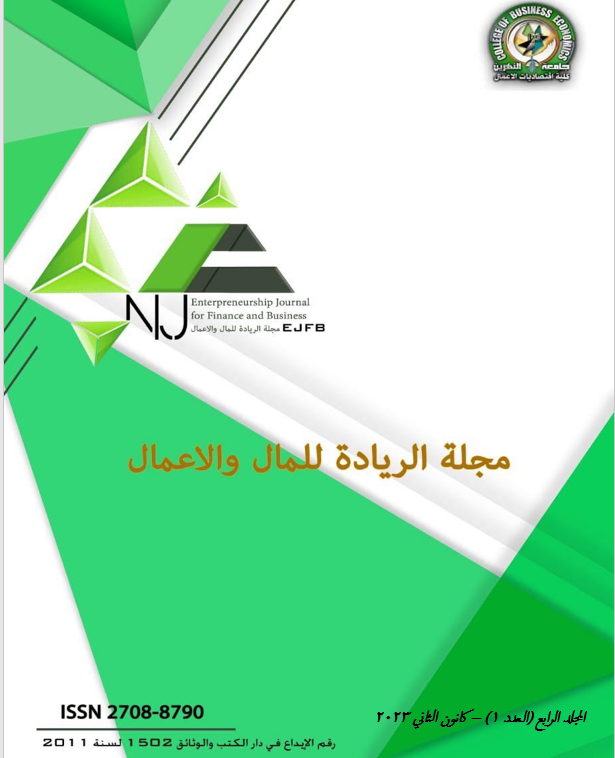Analysis Of Financial Discipline Indicators and Their Impact on Monetary Stability: An Applied Study on The Iraqi Economy
DOI:
https://doi.org/10.56967/ejfb2023243Keywords:
fnancial discipline, monetary stability, financial rules, joint integration, the Iraqi economyAbstract
The study aimed to analyze indicators of financial discipline and measure the effects of those indicators on monetary stability in the Iraqi economy, based on quarterly data for a time series for the period (2004-2020), through the use of cointegration methodology and the Autoregressive Distributed Lag (ARDL) after Performing a time series quiescence test (KPSS). A long and positive relationship between indicators of financial discipline (debt ratio to GDP, foreign reserves and money supply to GDP) and monetary stability. The study recommended the need to adhere to the rules of financial discipline to maintain the exchange rate by increasing the domestic production base, increasing non-oil exports and reducing dependence on the currency selling window that drains foreign reserves, as well as the need to switch to (E-government), which aims to achieve financial discipline within the country, Enhancing the exchange rate of the Iraqi dinar and enhancing the competitiveness of non-oil sectors such as industry and agriculture in increasing Iraqi exports.
Downloads

Downloads
Published
How to Cite
Issue
Section
License
Copyright (c) 2023 فيصل غازي فيصل، عبدالرزاق ابراهيم شبيب، احمد حسين بتال

This work is licensed under a Creative Commons Attribution 4.0 International License.
This is an Open Access article distributed under the terms of the creative commons attribution (CC BY) 4.0 international license which permits unrestricted use, distribution, and reproduction in any medium or format, and to alter, transform, or build upon the material, including for commercial use, providing the original author is credited.





